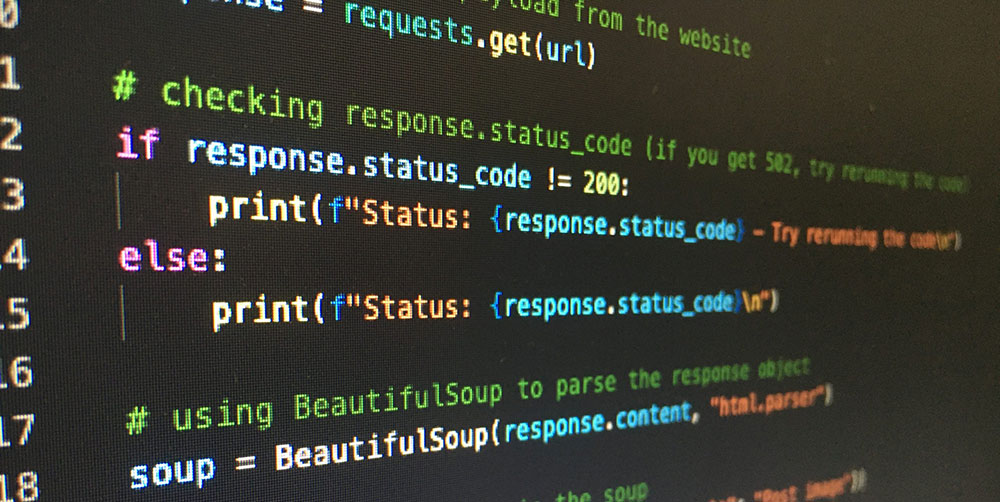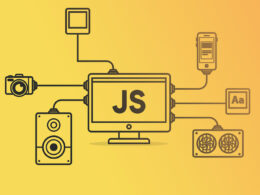Python Explained: What is Python Used For?
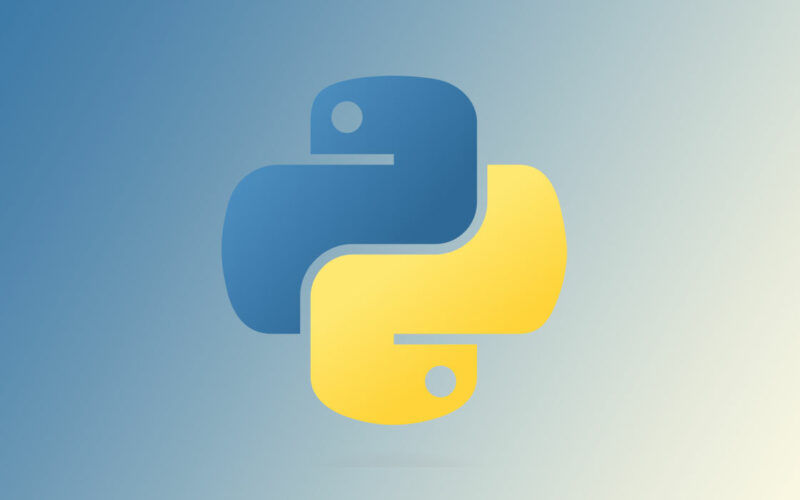
Imagine a Swiss Army knife, versatile and reliable for countless tasks; in the digital realm, Python holds a similar stature.
This elegant and powerful programming language stretches its coils across fields as diverse as web development, artificial intelligence, and scientific research, firmly establishing itself as an indispensably multifaceted tool.
Delving into Python’s capabilities is like unlocking a treasure trove of potential; one that you, too, can harness. Here, we embark on a journey through Python’s extensive applications—a tale of code that begets innovation.
Discover the allure that keeps beginners and seasoned professionals alike glued to this scripting phenomenon, from its intuitive syntax to its vast libraries like NumPy and Pandas.
By the end of this narrative, expect a panoramic view of Python’s dominion: the creation of web frameworks, the automation of mundane tasks, and the exploration of machine learning’s frontiers.
This is not just about the what; it’s an odyssey into the how and why—an enlightening expedition that promises to expand your digital toolbox.
What is Python Used For?
Python is used for web development, data analysis, artificial intelligence, and scientific computing due to its simplicity and powerful libraries. It’s also popular in automation and software testing. Python’s readability and versatility make it a favorite for beginners and experts in diverse fields including finance and education.
| Use Case | Features | Libraries/Frameworks | Performance | Notable Examples |
|---|---|---|---|---|
| Web Development | Dynamic, high-level | Django, Flask | Good with WSGI | Instagram, Pinterest |
| Data Science | Data analysis, visualization | Pandas, NumPy, Matplotlib | Fast for scripting | Jupyter Notebooks |
| Machine Learning | AI & algorithm support | TensorFlow, Scikit-learn | Optimized with C extensions | Various ML models |
| Scripting & Automation | Easy to read and write | Built-in, third-party libraries | Rapid development | System admin scripts |
| Scientific Computing | Large scientific community | SciPy, SymPy | Performance with Cython | Bioinformatics tools |
Core Features of Python
Language Attributes
Python as a high-level, object-oriented language

Let’s break it down – when we ask, “What is Python used for?”, we’re really diving into a world where complexity is made simple.
Python is a high-level language, which means it’s user-friendly, both for coding newbies and seasoned pros. It’s like speaking in plain English, but the computer gets it!
Python’s object-oriented nature is like having building blocks that you can reuse and rearrange.
It’s not just about writing code; it’s about creating models that mirror real-world processes.
This approach is super handy in software development and building applications that are robust and easy to maintain.
Its simple, English-like syntax
Ever seen Python code? It’s like reading a book. Its syntax is clean, intuitive, and, dare I say, beautiful.
This simplicity is why Python is often the first language people learn – it’s as close as you can get to writing out your thoughts directly.
And when we think about “What is Python used for?”, this simplicity plays a huge role. From scripting to automation, it makes tech stuff less techy and more approachable.
Versatility and Flexibility
Python as a general-purpose language
Python is like a Swiss Army knife for programmers. It’s not just stuck in one niche. Web development, scientific computing, data analysis – Python’s got it covered.
This versatility is a big part of what makes Python so popular. It’s like having one tool that can do almost anything you need in the digital world.
The extensive library of modules and community support
Now, this is where Python really shines. Its massive library of modules and frameworks – think Django for web development or pandas for data analysis – gives it superpowers.
Need to crunch numbers or build a website? Python’s got a module for that. And the best part? There’s a huge community out there.
Whether you’re a beginner or an expert, there’s always someone to help you out. For anyone diving into Python, exploring these best Python libraries can be a game-changer.
Key Applications of Python
Python, oh Python – a language not just for coding geeks, but for anyone who dreams big in tech.
Let’s dive into how Python is changing the game in various fields.
Web Development
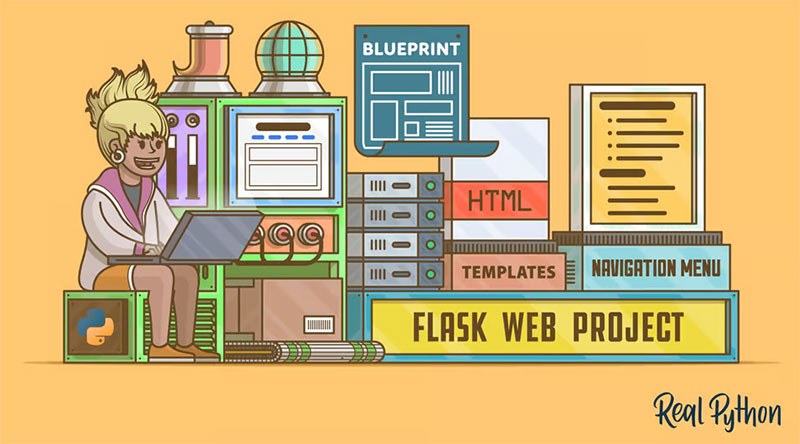
Python in web development is like a wizard in the digital realm. It’s not just about slapping code together; it’s about creating magic on the web.
You’ve got frameworks like Django, Flask, and Pyramid making the process smooth, efficient, and, let’s be honest, pretty cool.
Backend development and API creation: Python’s simplicity and power make it a top pick for backend development. It’s like being the architect of a digital world, building the structure that holds everything together.
And when it comes to API creation, Python is the go-to for ensuring different software can communicate seamlessly. If you’re into web development, Python is your ally in creating responsive, dynamic websites.
Popular frameworks: These are the tools that make Python a star in web development. Django, Flask, Pyramid – they’re like the superheroes of Python, each with their unique powers.
Django, for instance, is all about building robust web applications fast and efficiently. Flask, on the other hand, gives you more freedom and flexibility. It’s like choosing your adventure in the world of web development.
Data Science and Analysis
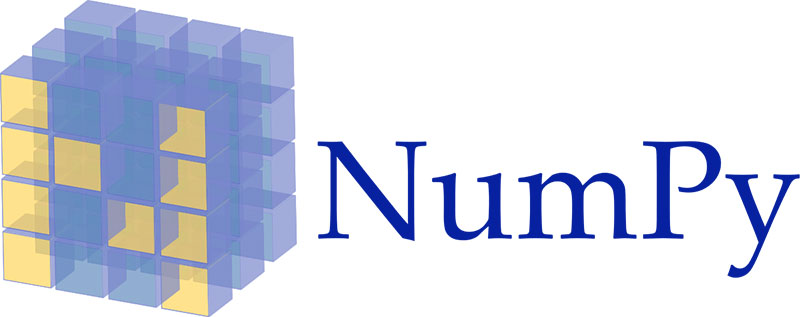
Data manipulation, analysis, and visualization: Python is the Sherlock Holmes of data. It looks at a mountain of data and finds the story hidden within.
Libraries like pandas, NumPy, and SciPy are Python’s magnifying glass, helping you dissect and understand the data.
Relevant libraries: Python’s strength in data science is backed by its powerful libraries. pandas for data manipulation, NumPy for numerical computations, SciPy for scientific computing – these libraries are what make Python a powerhouse in data science.
It’s like having a toolbox that’s brimming with exactly what you need to make sense of data chaos.
Machine Learning and AI
Building machine learning models: When it comes to machine learning, Python is like the brain behind the operation.
It’s the language that turns algorithms into learning machines, giving computers the ability to learn without being explicitly programmed.
Libraries and frameworks: Python and machine learning are like peanut butter and jelly – a perfect match.
Libraries like scikit-learn simplify machine learning algorithms, while TensorFlow and Keras are more about deep learning and neural networks. It’s these tools that put Python at the forefront of AI and machine learning.
Scientific Computing
Application in research and scientific analysis: Python in scientific computing is like a scientist’s best friend.
It’s used in everything from crunching numbers to simulating complex phenomena.
Specialized libraries for various scientific fields: Python is chock-full of libraries tailored for scientific computing.
Need to solve a complex mathematical equation or model a natural process? Python’s got a library for that.
Python in Different Industries
Python is like a universal language, speaking to various industries with its versatile code.
It’s amazing how this one language can wear so many hats. Let’s explore how Python is making waves across different sectors.
Finance and FinTech
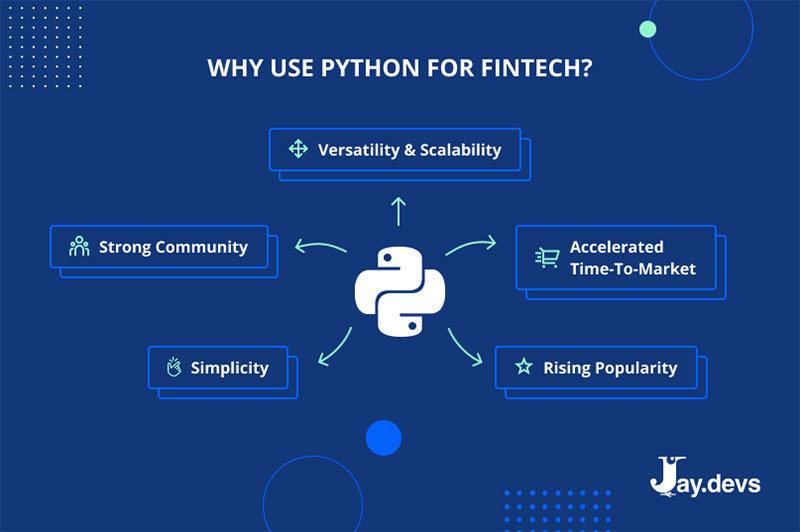
Python’s role in financial analysis and algorithmic trading: In the world of Finance and FinTech, Python is like the wizard of Wall Street.
Its ability to handle complex financial data makes it a favorite for number crunching. From predicting market trends to automating trades, Python is the secret ingredient in the recipe of financial forecasting and algorithmic trading.
Adoption by major banks and financial institutions: It’s not just the tech startups; even the big guns in banking are turning to Python.
Major banks and financial institutions use Python for everything from risk management to customer service solutions.
Python’s versatility and ease of use make it a no-brainer for the finance sector. For those eyeing a career in FinTech, Python is like your golden ticket. Here’s a resource on Python certification that can give you an edge in this field.
Startups and Business Solutions
Python’s scalability and efficiency in startups: Startups love Python! Why? Because it’s fast, scalable, and efficient.
When you’re building a business from the ground up, you need a language that can keep up with your pace. Python is that language.
Case studies of successful startups using Python: Countless startups have skyrocketed to success, thanks in part to Python.
It’s the MVP behind many successful business models, proving its worth as a powerful tool for startups.
Other Industries
Examples of Python use in diverse sectors like entertainment, healthcare, and education: Python’s influence doesn’t stop at tech and finance.
It’s making a splash in entertainment, healthcare, education, and more. In entertainment, Python is used for everything from video game development to special effects.
Healthcare uses Python for data analysis and predictive diagnostics. In education, it’s a tool for teaching coding and computational thinking. Python is everywhere!
Python for Automation and Scripting
Talking about Python, it’s like having a magic wand in the world of automation and scripting. Seriously, it’s a game-changer.
Let’s see how Python is making life easier and more efficient in this tech-savvy era.
Task Automation
Automating repetitive tasks and processes: Imagine doing the same boring stuff every day. Now imagine not doing it because
Python’s got your back. That’s Python in automation. It turns those yawn-inducing tasks into a “set it and forget it” deal. From sending emails to organizing files, Python scripts are like your personal assistants, only they don’t need coffee breaks.
Scripting capabilities for system administration: System admins love Python, and why wouldn’t they? Scripting with Python is like having a Swiss Army knife for system tasks.
It’s not just about ease; it’s about making complex tasks manageable. Whether it’s managing servers or automating network configurations, Python scripts are the unsung heroes in the world of system administration.
For those looking to streamline their work, diving into Python’s world of scripting is a no-brainer.
Here’s a cool read about the best IDE for Python, which could be super handy for scripting.
Software Development
Use in software prototyping and testing: When it comes to software development, Python is like the MVP.
Prototyping? Python makes it quick and painless.
Testing? Python helps ensure your code is bug-free and ready for prime time. It’s like having a trusty sidekick in the software development journey.
Python’s role in the software development lifecycle: From start to finish, Python plays a pivotal role in software development.
It’s not just about writing code; it’s about creating solutions that work and last. Python’s simplicity and robustness make it an ideal choice throughout the software development lifecycle.
Learning Python
Learning Python is like unlocking a new level in your tech game. It’s not just about coding; it’s about opening doors to endless possibilities. Let’s dive into why learning Python is a smart move and how you can get started.
Accessibility and Resources
Python’s ease of learning for beginners: If you’re just starting out in coding, Python is like your best friend.
It’s easy to learn, thanks to its simple syntax – like English, but for computers. It’s the kind of language that doesn’t scare you away with complicated jargon.
Instead, it welcomes you into the world of programming with open arms.
Availability of online resources and tutorials: The best part? There’s a sea of resources out there.
Online tutorials, guides, forums – you name it. The Python community is huge and super helpful. Whether you’re stuck on a problem or just starting out, there’s always someone to help you out. And for those who prefer a structured learning path, there are amazing Python books that can guide you from beginner to pro.
Career Opportunities
Job roles requiring Python skills: So, what is Python used for in the job market? A lot! From web developers to data scientists, Python skills are in high demand.
It’s not just a nice-to-have; it’s a must-have in many tech careers.
The growing demand for Python developers in various industries: The demand for Python developers is skyrocketing. It’s like everyone wants a piece of the Python pie.
And why not? With Python’s versatility, the range of industries you can work in is massive. Finance, healthcare, tech – you name it, they need Python developers.
FAQ On What Is Python Used For
Is Python a good language for beginners to learn programming?
Certainly. Python’s intuitive syntax mirrors English, easing the learning curve. Beginners find respite in its clarity, which allows them to focus on concepts rather than intricate code syntax.
The supportive Python community offers a wealth of resources, from tutorials to forums, making the entry into programming less daunting.
Can Python be used for web development?
Indeed. Python powers various web frameworks, including Django and Flask, simplifying the process of web development. It enables developers to construct robust web applications with less code.
Python’s versatility in web development ranges from building server-side code to managing databases and serving web pages.
How significant is Python in data analysis and big data?
Python’s significance in data analysis is unparalleled. Libraries like Pandas and NumPy have become standard tools for data manipulation and analysis. When it comes to big data, Python interfaces with platforms like Apache Spark, helping to process and analyze large data sets efficiently.
What role does Python play in artificial intelligence and machine learning?
Python is the lingua franca of artificial intelligence (AI) and machine learning. Its simplicity and extensive libraries like TensorFlow and SciPy make it ideal for developing AI algorithms.
The ease with which Python handles complex mathematical calculations is a boon for AI researchers and practitioners.
In what ways is Python used in scientific and numeric computing?
Python excels in scientific computing thanks to packages such as SciPy and NumPy. These packages assist in complex scientific calculations and numerical simulations, essential in fields like physics, chemistry, and bioinformatics. Python’s ability to process large data sets fuels advancements in scientific research.
Can Python be utilized for software development?
Absolutely. Python is a workhorse for backend software development, offering structures like classes and exceptions to create maintainable and scalable code. Its Python Package Index (PyPI) supports various modules and scripts that enhance software development efficiency and functionality.
Is Python advantageous for automation and scripting?
Unquestionably. Python simplifies automation through system scripting which automates mundane tasks.
This ranges from batch renaming files to scraping data off web pages. Python scripts can automate complex systems, improve workflows, and eliminate human error from repetitive tasks.
What industries use Python for their technical advancements?
Python’s versatility touches numerous industries—from financial services implementing algorithmic trading to game development studios leveraging its flexibility. The educational sector uses Python to teach coding, while healthcare employs it for data analysis, contributing to research and patient care.
How does Python benefit network servers and Internet of Things (IoT)?
Python streamlines network server management with frameworks that can handle communication and data exchange.
When it comes to the Internet of Things (IoT), Python scripts enable devices to collect data, communicate with servers, and perform actions, making it integral to IoT development and connectivity.
Do Python’s capabilities extend to desktop application development?
They do. Python’s application in desktop development is substantial. With graphical user interface (GUI) libraries like Tkinter, PyQT, and wxPython, one can craft applications with ease. The language’s portability means those applications can run across Windows, Mac, and Linux environments.
Conclusion
In the tapestry of technology, Python threads run long and deep. Untangling the question “what is Python used for?” reveals a pattern of limitless versatility—spanning web development, with frameworks handling complex backends, to scientific exploration, where granular data analysis unfolds. Its coils wrap snugly around AI innovations, where machine learning models breathe digital life.
The journey through Python’s landscape has shown its colors—shades that stretch to touch network servers as adeptly as they sculpt educational tools. It’s a language that has grown synonymous with opportunity, a key that unlocks a myriad of digital doors across industries. Let’s step back, marveling at the Python tapestry—a rich mosaic where code, community, and creativity converge.
As we part ways with this narrative, the image is clear. Python isn’t just a language; it’s a realm of potential—a digital chameleon ever-adapting, ever-serving the inquisitive minds that dare to ask, “What can Python do for me?”
- Boost Your Website: Top Static Site Generators - May 6, 2024
- Kotlin’s Key Uses: What is Kotlin Used For? - May 6, 2024
- Edit Videos on the Go: Best Apps Like iMovie - May 5, 2024





